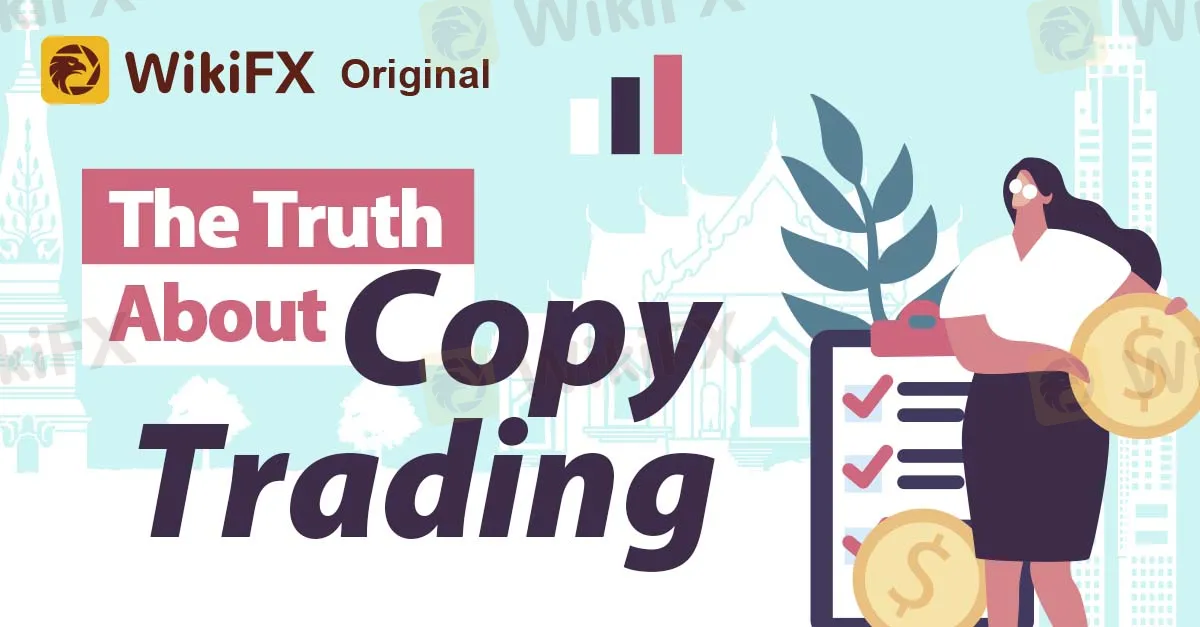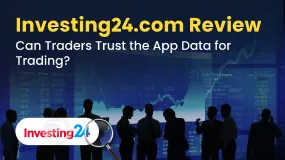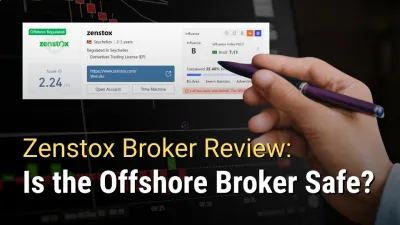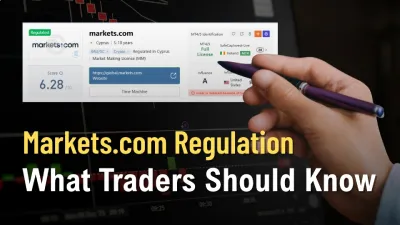Abstract:To find out how many forex traders are actually consistently profitable, researchers conducted a study among a group of Brazilian FX day traders between 2013 and 2015 and found that:

97% of investors lost money
0.4% earned more than bank tellers (about $54 per day)
The top traders make an average of $310 per day
Through this, it is evident that the currency market is a tough game to ace despite its low barrier of entry.
In this scenario, some might think “if trading is so hard, why dont I just follow the experts and make money effortlessly?”

Copy trading is the act of directly copying a master traders orders. When the master trader places an order, your trading account does the same automatically. However, the master trader does not have access to your trading account and funds. You have the control and option to close the trade at any time or open a new position whenever you want.
There are two types of accounts in copy trading:
Master Trader: this is the person who makes the trading decisions
Follower: this is the person who copies the Master Trader's trades
Both the Master Trader and the Follower must be using the same forex broker and the same trading platform.
Just like everything else, copy trading has its cons despite the convenience and exciting upside that it seems to promise.
1. You may not have the conviction to follow the orders for a long time
Can you have blind faith in a complete stranger? No, you cannot, especially not when your hard-earned money is on the line.
It is common for followers to panic and gets swayed by their emotions, such as fear and greed, which cause them to take action prematurely without following the master traders strategy or trading rules. Consequently, that affects the results of copy trading.
Another possibility is that the master trader is not an expert but he is just overtrading to earn more commissions for himself. Therefore, the master trader might not be able to make consistent profits. When the market gets rough, the master trader could also blow his followers accounts if he is not skilled enough.
2. Copy trading may be costly
Copy trading is a branch of business for the forex brokers that offer such service wherein they make profits off the higher spreads and overnight fees at the expense of trading followers.
For instance, ABC charges a spread on EUR/USD of 1 pip for individual retail traders and an overnight rate of 5 pips. However, for traders that are using copy trading services, the spread on this pair is now 4 pips whereas the overnight rate is 10 pips.
These costs do not affect the master trader, but if you are a follower, it is better to follow masters that take lesser trades so your profits will not be eaten up by these underlying costs.
3. Beware of possible conflict of interests
Master traders get more commissions from the forex brokers that they work with. In essence, they get paid more as their number of followers increases.
One of the common tactics that they use to attract more followers is to use a high win rate trading system. Unfortunately, in many circumstances, these masters are achieving such high win rates with a wide stop loss. For example, they have a 100 pip stop loss with a 5 pip profit. This is not a sustainable trading strategy because the risk-reward management is illogical. It is only a matter of time until the followers suffer from one loss that can wipe out all the small gains. When this happens, the master trader has already profited from the management fees and commissions.
This is not to say that all master traders are bad, but you must be aware of this possible conflict of interest. If you see an equity curve that is too skewed, that could be a red flag that should not be ignored.
4. Copy trading is a marketing strategy that fraudulent brokers often use
Scam forex brokers often offer copy trading strategies that are widely promoted in social media groups, public chatrooms, and forums. They delude struggling traders to think that they have a forex guru who can make them rich and profitable as long as they get on board with a certain amount of minimum deposit.
These are cases that were reported on WikiFXs Exposure page (https://exposure.wikifx.com/en/revelation.html) by traders from different countries. They are victims who participated in copy trading but were eventually denied their withdrawals by their brokers for various “reasons”.




If you face similar issues as the traders above, please do not panic. Quickly gather as much evidence as possible could and get in touch with WikiFX so we can assist you through any medium below:

Undeniably, not all copy trading services are linked with malicious forex brokers. WikiFX advises you to carry out your due diligence before engaging with any fx broker or taking up their services. All you need to do is download the free WikiFX mobile app on Google Play/App Store, or head to the WikiFX website at www.wikifx.com and fully utilize the search bar to check if the broker is regulated and reliable.
There are many fishes (i.e. forex brokers) in the sea. Hence, if there is any sign of a red flag, do not hesitate to switch to a more reputable broker to keep your trading account and funds safe.
Ultimately, if you still wish to go down the path of copy trading, here are some tips to help you:
(i) Understand the concept behind the trading strategy so as not to give up after a few losses
(ii) Have confidence in the master trader you are copying by observing from afar or sending the master trader questions for clarifications on your doubts
(iii) Diversify between different trading strategies in order to improve the reward-risk ratio
Alternatively, you could also take a look at WikiFXs Expert Advisors (EA). It is fairly similar to copy trading. Instead of relying on a master trader, this is a computer program that detects a certain market condition and executes trades automatically. To learn more about EA, you can refer to these articles below:

Read full article here: https://www.wikifx.com/en/newsdetail/202205247714460204.html

Read full article here: https://www.wikifx.com/en/newsdetail/202206134524141511.html
If you have done your research on how an EA works and are genuinely interested in implementing an EA to help improve your forex trading, feel free to participate in WikiFXs EA giveaway by following the simple instructions here:

Read more about this giveaway campaign here: https://www.wikifx.com/en/newsdetail/202206168584426253.html



















